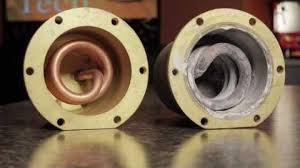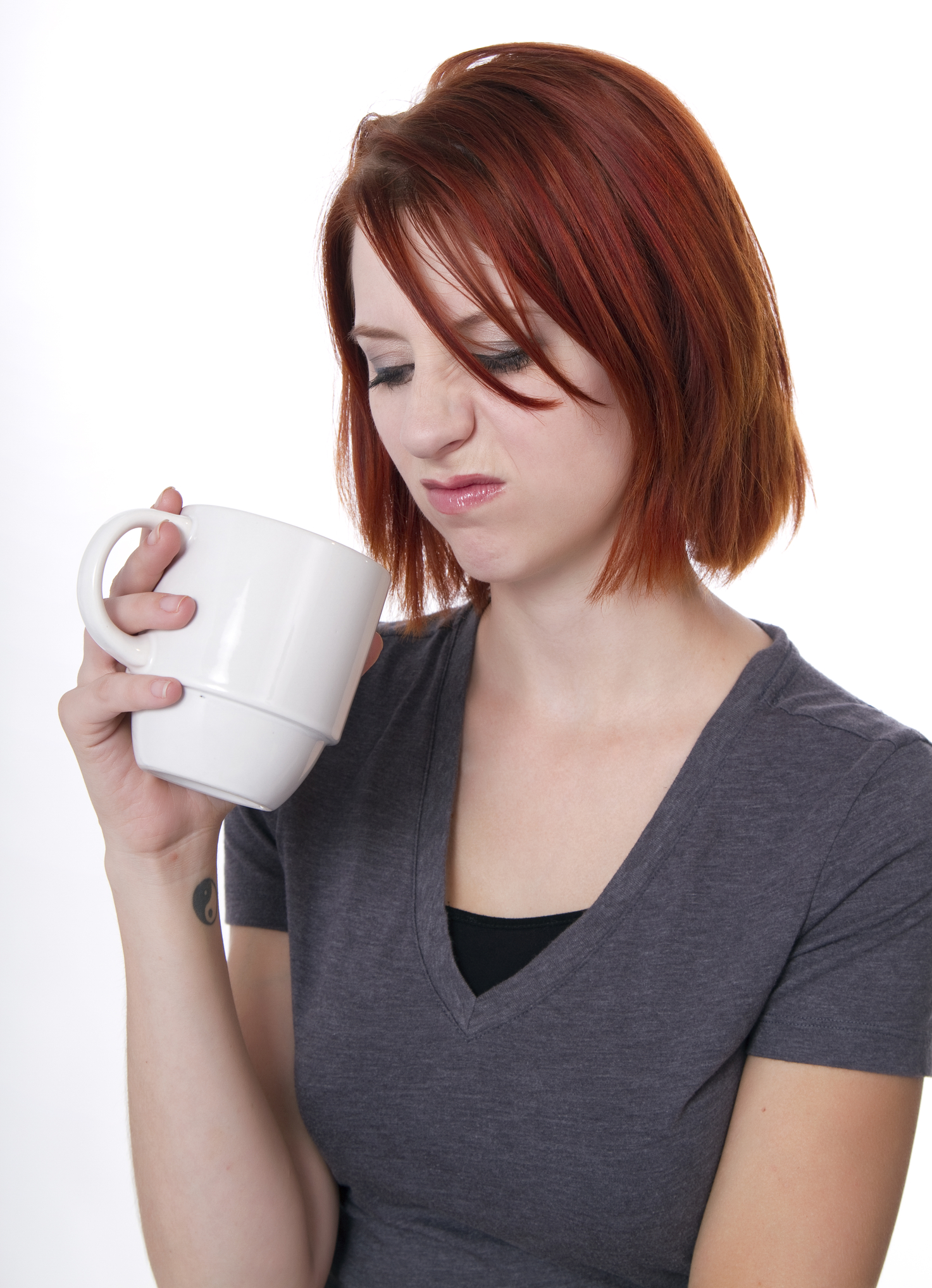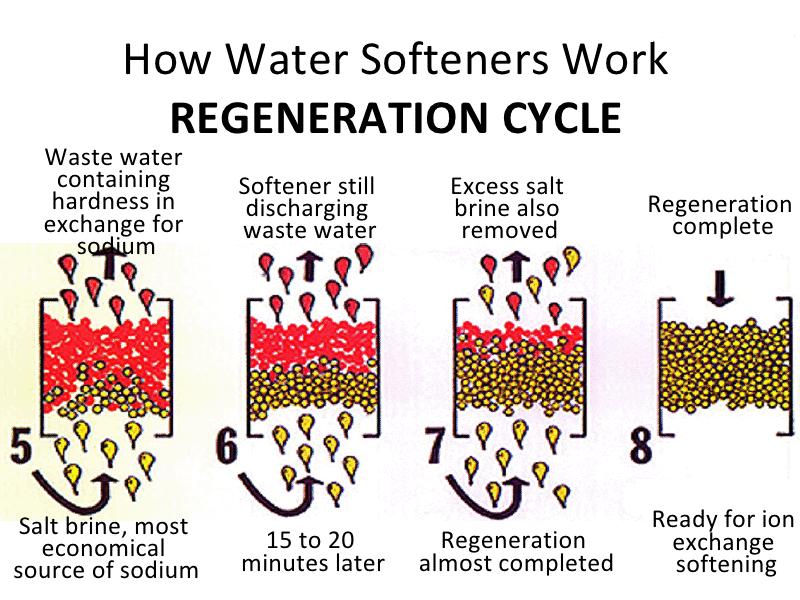Few days ago I was helping myself to tea at a friend’s house. While opening the
kettle’s cover to pour more water in, I’ve noticed the thick, stony, off white lime
scale crust at the bottom of it. I’ve asked my friend:
‘Tara, have you noticed anything wrong with the taste of your tea? ‘Not really’
was the answer, and then this followed: ‘In a second thought, I did notice
some white bits at the bottom of my mug when I finish drinking…’
You
may not be as desensitised to chlorine taste in your tea as Tara is, but you may
have experienced the same scale crust in your kettle, your washing machine and perhaps in your
pots too. And if you happen to have a Coffee Machine and your
kettle looks like Tara’s, your coffee machine may be in
real trouble and even on its last legs..
Why?
Because hard water contains higher than average levels of dissolved minerals. If rainwater that is naturally ‘soft’, runs through soft, spongy
rocks, like limestone or chalk, it absorbs minerals from them. These minerals,
often calcium or magnesium carbonate, are what make the water become
hard.
When hard water is heated inside your
coffee machine, the calcium
salt crystals begin to separate and spread out into
 the nearby surface and forms a layer of scale.
the nearby surface and forms a layer of scale.
This formation slows down water flow and operation of the pipes. It can
accumulate on most internal parts including
the boiler and the heating element and may result in loss of pressure,
drop in temperature, blockages and leakages. If scale builds up on the pipes
leading to a gauge for example, it may stop reading correctly. This not only
creates immediate functionality issues but also reduces
the efficiency and life span of the machine.
When your coffee machine
is affected, it can also affect you. Limescale
formation around taps and shower heads has proven to be unhygienic and harmful
for certain people. Few researches show that lime
scale and chlorine, can act as irritants and make your skin feel tighter or
appear irritated. Dr. Dennis
Gross, a Dermatologist
says that: ‘The problem with hard water is that its high mineral content
prevents it from properly reacting with soap and, instead of triggering a
lather, it creates a soapy layer on the skin. This not only clogs pores, but
also irritates the skin, making it itchy, flaky and dry. These impurities in
water make it difficult for soap and shampoo to wash off, leading to
dryness of the skin,
which directly irritate skin and cause redness and rosacea.’
This is also the reason for causing common detergents to
be less effective, so that clothes end up looking dirty even after being washed, and that plates and
glasses can look dull over time.
Limescale also leads to hair
problems. According to APEC Water, ‘Washing hair in hard water causes it to
become straw-like, dry and brittle. It is likely that your hair will break or
start thinning because the hair follicles become blocked thereby preventing the
flow of nutrients to the scalp. Your scalp may also become dry and flaky.
The
good news is that it doesn’t kill you, but it
CAN KILL YOUR COFFEE MACHINE!

How do
you know when your coffee machine has been affected?

What
to do?
General
rule of the thumb is to use filtered water at home to avoid the disease AND
regular servicing with your certified technician who will descale your machine
for you.
Note
small machines with thermoblock like Breville, Delonghi and Sunbean, require
often descaling which can be done at
home (as per manufacturer instructions). You can get a descaler for DYI
descaling here.
For Prosumer level machines, or commercially oriented, boiler machines, we recommend NOT to descale it yourself but to
use filtered water, clean the machine regularly and check in for general service every 18
months, where your machine will be tested for scale and be treated accordingly.
If you
suspect scale build up, do the following:
We’ve sourced a range of products and services to provide the right solution for
your lime scale build up. Scale is responsible for up to 70% of all breakdowns
causes in our workshop, and in certain cases, particularly with machines that employ
aluminium boilers, that may end in a ‘write off’ when the technician’s recommends not to proceed with
the repair for being time consuming and costly.

While keeping your machine
scale free at home can be fairly easy and affordable task, it is surprising how minimal awareness and action is taken by
coffee machines owners to do the right thing by their machine, protect their
investment and enable the life expectancy it was designed to have. Once we
become aware of the need, It will be good to shift our minds and see water filtration and / or regular
descaling as asset protection investment and a cost saving exercise, as it will
save you from lugging often the machine to the workshop and incurring high repair
bills that can easily be prevented.
Remember to stay away from assumptions.
Just because your neighbour’s machine didn’t suffer from scale, it doesn’t mean
that the water going through the pipes that lead to your unit, pass through the
same terrain. In Australia, it is fairly
accurate to say that water in capital cities are softer than the country side and
that NSW & VIC water are generally softer than in WA, QLD, NT, SA &
TAS, but it’s always recommended to test your own water, as the most accurate hardness
level measure. Even in Sydney we see a machine coming over with scale related issues,
while another machine (same model) from the same street will have little scale
if any. Adding on heating and cooling frequency as a contributor to scale rate,
it will make sense to get definite answers.
To learn more about water quality
and how it affects your coffee machine, and to find out the right water filtration solution for your machine, click here.
Please contact our friendly technical support team with any question relating
to your water quality.
© 2020 Ofra Ronen